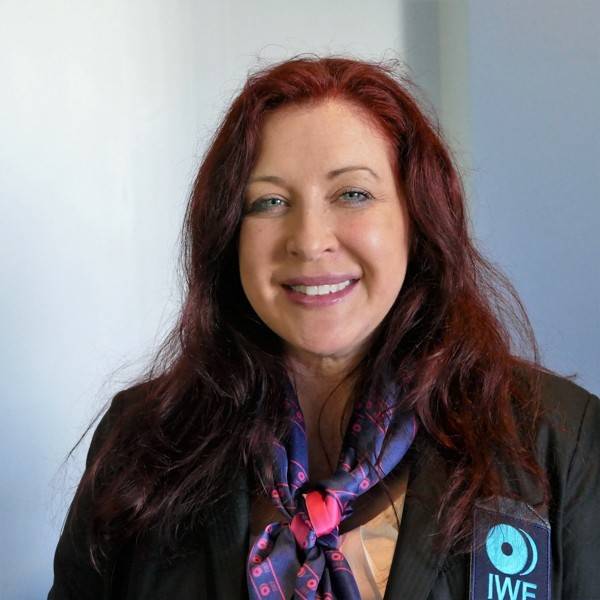Bobcat is the first woman to head weightlifting federation
Benjamin Gleisser | July 13, 2021

Ursula Garza Papandrea (B.S. ’98, M.S. ’04) has earned the nickname “The queen of Olympic weightlifting.” She earned it from winning championships, being the first woman elected as vice president of the International Weightlifting Federation (IWF) and being one of the first women to challenge the status quo in the traditionally male-dominated sport.
Her next challenge is dealing with the IWF weightlifting’s global governing body, which seems to be throwing its weight around. Papandrea was overseeing an investigation of the IWF — being appointed interim president in 2019 after allegations of financial corruption and a coverup of false drug testing was revealed in “Secret Doping – the Lord of the Lifters,” a documentary that aired on German television. The previous president temporarily stepped down during the investigation. Papandrea was named interim president but then ousted by the executive board in October 2020. The election for a new IWF president was originally set for March 2021 before being changed to June — just a month before the Olympic Games. The new interim president of IWF is Dr. Michael Irani of Great Britain, the IWF medical director.
Though Papandrea has vowed to continue pushing for more transparency in the running of the IWF, “things are in flux right now,” she says “What we’re doing is taking the necessary steps. We can’t have someone making allegations, and as an organization, we’re compelled to look into them and remove the cloud of suspicion. We didn’t have a choice.”
In addition to being the first female elected vice president in IWF history, she also chairs the organization’s Women’s Commission and the Oversight and Integrity Commission.
When Papandrea accepted this assignment, she resigned as chairwoman of the Board of USA Weightlifting where she had also served as its technical director since 2009. She cut back on coaching duties at the Texas Barbell Club in Austin, which she opened in 2013.
Papandrea was the first woman to attain the rank of USA Weightlifting’s Senior International Coach Level 5. The certification is given to a coach whose athletes have reached the top echelons of Olympic weightlifting competitions. Although she no longer competes, Papandrea won two women’s World Championships and two women’s Olympic Festivals competitions. She is also is a two-time North America, Central America, Caribbean Islands champion.
Competitive lifting, with its snatch and clean-and-jerk movements, is different than powerlifting, which relies more on muscles and strength. “Competitive lifting is more like gymnastics. It combines flexibility, agility, speed, and power,” she says.
Papandrea began lifting at a Houston YMCA with her brother when she was 14 years old. In high school, she was also captain of the cheerleading squad. She took to weightlifting because she didn’t enjoy contact sports. “At the time, I didn’t even realize there weren’t any other women around. No other women were competing in weightlifting,” says Papandrea.
She competed collegiately at The University of Texas at Austin, then took a break from her studies to pursue weightlifting full-time. She later earned a bachelor’s degree in exercise and sports science and a master’s degree in political science from Texas State.
Papandrea’s next goal is to attract more women to weightlifting. “We’re looking at developing pipelines to bring more women into the sport,” she says. “There’s not enough female representation in all sports at all levels, especially in leadership positions.”
Despite her accomplishments, Papandrea refuses to call herself a trailblazer. “Women haven’t had the chance to influence sports as they should have,” she says. “Every time I’ve created an opportunity, I know someone behind me has to struggle a little less to achieve that opportunity. I just hope the path I’m taking makes it easier for more women to achieve success.
“I’m not a trailblazer, though I think other people might call me that,” she says with a laugh. “I’m just dealing with the next challenge in front of me.” She pauses a moment, then adds, “One way to be a trailblazer is to set a good example for others.”
Share this article
For more information, contact University Communications:Jayme Blaschke, 512-245-2555 Sandy Pantlik, 512-245-2922 |